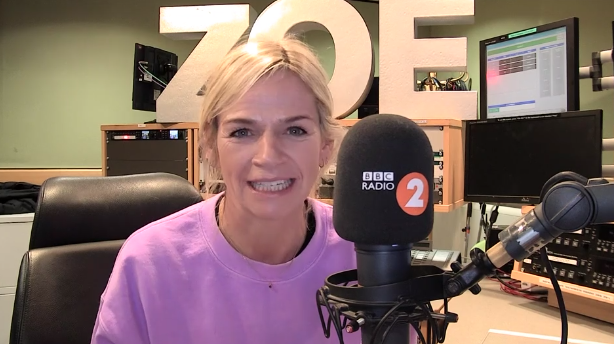Data: 34.5m tune in to BBC Radio each week
February 3, 2022
Figures from RAJAR (Radio Joint Audience Research) reveal that 34.5 million people tuned in to BBC Radio each week for live output across the stations during Q4 2021, with a share of 49.9 per cent.
During the same quarter, on BBC Sounds there were a total 162 million plays to on-demand radio and podcast content, and 5.2 million plays of music mixes. On third party platforms, there were 257 million downloads of BBC podcasts and on-demand radio programmes across the world.
Charlotte Moore, BBC Chief Content Officer, commented: “I’m delighted that millions of people choose to start their day with our most popular music breakfast shows and their brilliant hosts Greg and Zoe, who continue to entertain and amuse listeners as they go about their morning routines. And congratulations to Rick and Rachel whose new Radio 5 Live breakfast show seems to be a hit with audiences. These figures show the important role that BBC Radio plays in people’s lives, with 34.5 million tuning in to listen live each week to our much loved stations. We also continue to see on-demand listening grow for both our radio programmes and podcasts, as audiences come to BBC Sounds to discover content to listen to whenever they want to.”

Station breakdown:
- BBC Radio 1 had 8.97m listeners aged 10+ and the Radio 1 Breakfast Show with Greg James (Mon-Fri) had 4.85m 10+ listeners.
- BBC Radio 2 had 14.87m listeners with 7.5m tuning in for The Zoe Ball Breakfast Show.
- BBC Radio 3 had 1.99m listeners.
- BBC Radio 4 had 10.48m listeners with 6.62m tuning in for The Today programme (Mon-Sat).
- BBC Radio 5 Live posted a reach of 5.89m listeners.
- Radio 1Xtra had 744k listeners, BBC Radio 4 Extra had 1.89m and BBC Radio 5 Live Sports Extra had 1.22m. BBC Radio 6 Music had 2.6m listeners, BBC Asian Network had 489k.
- The BBC World Service was listened to by 1.24m people, and BBC Nations radio and Local BBC Radio in England had a combined audience of 9.04m.
RAJAR was suspended from March 2020 after Coronavirus restrictions forced all face-to-face market research to be suspended. The revised approach, starting with Q3 2021 data, includes new ways to capture data, providing greater stability and security for the future. The new, revised approach sees the existing survey design adapted to broaden its data gathering sources with the inclusion of panellist and MediaCell technology for the first time, alongside face-to-face recruited respondents; capturing listening both from diaries and by means of audio matching technology on the respondents’ mobile devices. MediaCell is proprietary passive technology owned by Ipsos MORI which runs as an application on a smartphone. It identifies listening to radio stations by Audio Content Recognition (ACR) techniques.
